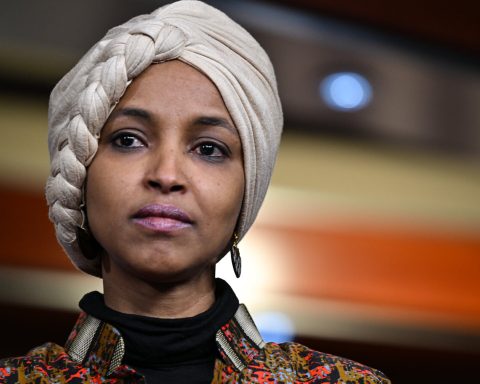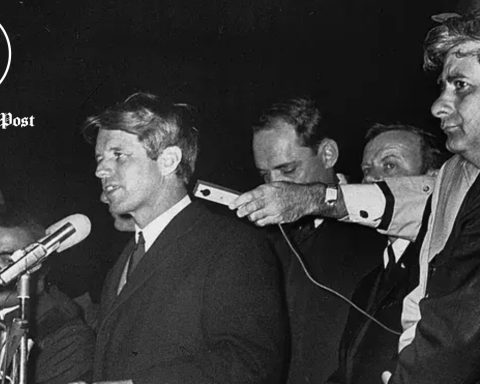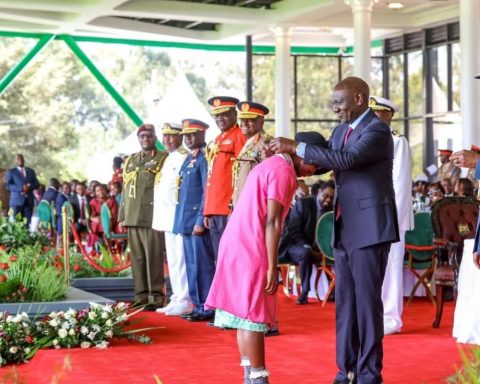Former US President Donald Trump became the first former US president to be accused of a crime in American history. Trump was indicted by a Manhattan grand jury.

The precise accusation or charges have not been made public because the indictment is still under seal. On Tuesday, Donald Trump is scheduled to show up in court in Manhattan for his hearing. This comes after years of inquiries into his commercial, political, and personal dealings, as well as a sudden setback to his campaign to retake the White House.
However, they are a result of payments made during the 2016 presidential campaign to discredit allegations of illicit sex. According to prosecutors, plans are being made to organize Trump’s possible surrender early next week. In the event of a conviction, they did not state whether they intended to seek jail time; however, this development would not prohibit Donald Trump from running for and winning the presidency.
Donald Trump, who has frequently criticized the probe and denied any wrongdoing, called the indictment “political persecution” and predicted it would hurt Democrats in the year 2024. Defense attorneys Susan Necheles and Joseph Tacopina said in a statement announcing the accusations that Trump “did not conduct any crime. In court, we will vehemently contest this political prosecution.

Sources with knowledge of the situation claim that Donald Trump was asked to surrender on Friday, but his lawyers refused, claiming that the Secret Service required more time to make security arrangements.
The case focuses on well-documented allegations from a time in 2016 when Trump’s desire to run for office and his past as a celebrity collided. Prosecutors for a month examined the money given to Stormy Daniels, a porn star, and Karen McDougal, a former Playboy model, whom he feared would come forward with claims that they had extramarital affairs with him.

Officials of the Trump campaign were apparently surprised by the timing of the indictment after reading news accounts that suggested that criminal charges were probably still weeks away.
The indictment comes at a time when Donald Trump is trying to regain control of the Republican Party and fend off a number of former supporters who might endanger his chances of winning the nomination. Florida Governor Ron DeSantis, a presumed front-runner in the campaign, called the indictment “un-American” in a statement Thursday night that purposefully omitted Trump’s name.
The Manhattan district attorney, Bragg, is pursuing the charges after two prior teams of prosecutors looked into the unusual case but decided against taking the potentially divisive move of seeking Trump’s indictment. The evidence of a key witness, Michael Cohen, Trump’s former attorney and fixer, who pleaded guilty to federal charges related to the hush money payments, including making false statements, may also play a role in the outcome of the case.
Until news broke in early March that Bragg had asked Trump to testify before a grand jury, an indication that prosecutors were close to filing charges, the investigation’s future appeared unclear.
The invitation was declined by Trump’s legal team, but a Trump-affiliated attorney gave a brief testimony in an attempt to cast doubt on Cohen’s credibility.

Daniels claims she had a sexual encounter with Donald Trump ten years prior after meeting him at a celebrity golf event. Cohen paid Daniels $130,000 late in the 2016 presidential campaign to keep quiet about the alleged incident.
The Trump Organization, which is run by Trump, then paid Cohen back, along with bonuses and additional payments that were officially recorded as legal costs. Cohen claimed that the business gave him $420,000 over a period of time.
Additionally, earlier in 2016, Cohen made arrangements for the National Enquirer’s publisher to pay McDougal $150,000 in order to kill her story about a Trump affair, a technique known as “catch-and-kill” journalism.
Read also: Donald Trump indicted by Manhattan grand jury
The payments to the women were made with the intention of buying confidentiality, but they quickly backfired when information about the contracts spilled to the media.
Cyrus Vance Jr., Bragg’s predecessor as district attorney, began the probe in 2019. While the original focus of that investigation was the hush money payments, Vance’s prosecutors expanded their focus to include an investigation into Trump’s business dealings and tax planning.
In the end, Vance filed a tax fraud lawsuit against the Trump Organization and its chief financial officer over the fringe perks given to some of the business’s top executives.
The hush money case became known as the “zombie case” within the D.A.’s office as prosecutors occasionally reviewed it without choosing to file charges.
Bragg took a distinct stance. After the Trump Organization was found guilty of tax fraud in December, he gave the old case new life by appointing seasoned white-collar lawyer Matthew Colangelo to lead the investigation and calling a new grand jury.
By meeting with investigators almost two dozen times, providing emails, recordings, and other evidence, and testifying before the grand jury, Cohen emerged as a crucial witness.
READ: Who Is Stormy Daniels? The Pornstar Behind Trump’s Indictment
The Manhattan probe has long been referred to by Trump as “the greatest witch hunt in history.” He has also attacked Bragg, labeling the black lawyer as racist toward white people.
The criminal charges in New York are the most recent shot in a serious rift between Trump and his hometown; they represent a comeuppance for the once-beloved son who became wealthy and famous by building skyscrapers, mixing with celebrities, and making headlines in the local gossip magazines.
Trump, who famously joked in 2016 that he “could stand in the middle of Fifth Avenue and shoot somebody” and “wouldn’t lose voters,” is now threatened with having his freedom taken away in a borough where more than 75% of voters—many of them prospective jurors—voted against him in the previous election.





